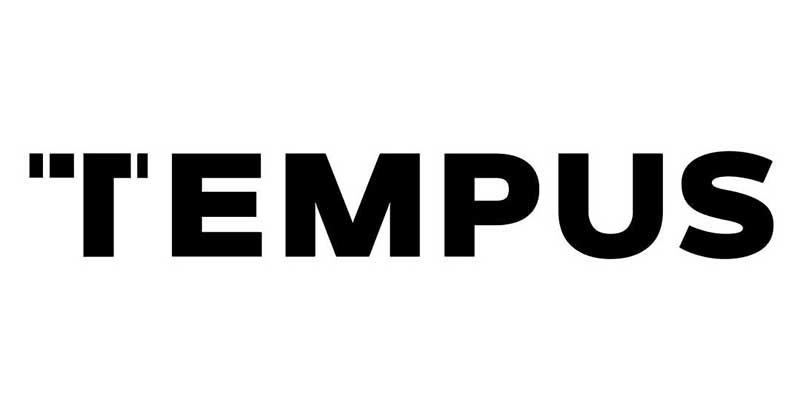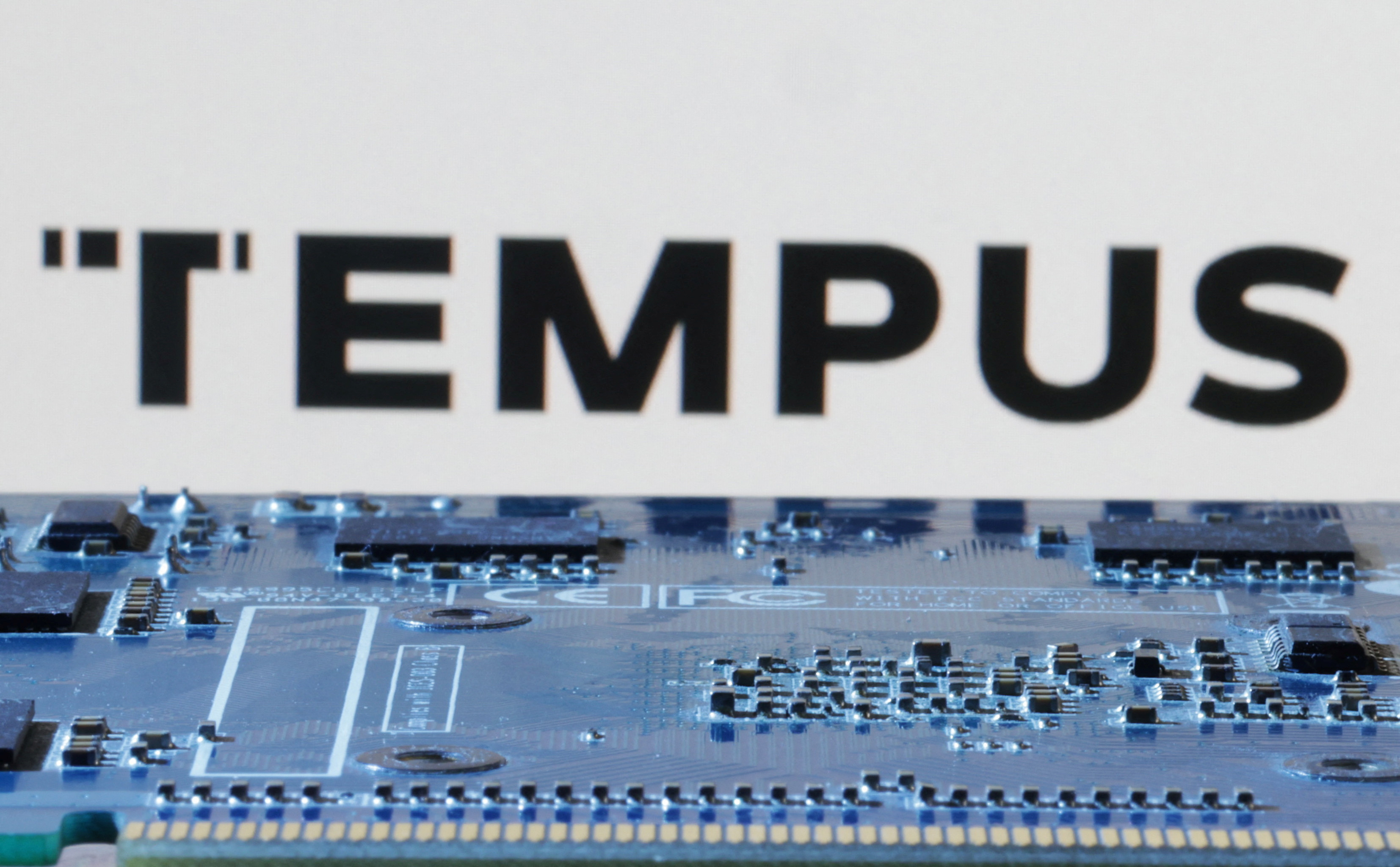Tempus AI Inc. (NASDAQ:TEM) Hits All-Time High Amidst Investments from Google and SoftBank

- Tempus AI Inc. (NASDAQ:TEM) reaches a record stock price of $47.81, buoyed by significant investments from industry giants.
- The company's financial metrics, including a price-to-earnings (P/E) ratio of -6.58 and price-to-sales (P/S) ratio of 14.44, highlight investor optimism despite profitability challenges.
- TEM's debt-to-equity (D/E) ratio of 4.56 and a current ratio of 3.70 reflect its financial risk and strong liquidity position, respectively.
Tempus AI Inc. (NASDAQ:TEM), a pioneer in healthcare diagnostics, has recently captured the market's attention with its stock price reaching an all-time high of $47.81. This remarkable achievement is largely due to substantial investments from industry giants Google and SoftBank. These investments have not only infused capital into TEM but have also significantly boosted investor confidence, as highlighted by Benzinga. Operating in the competitive field of healthcare diagnostics, TEM's advancements and collaborations position it as a key player among competitors, leveraging technology to revolutionize patient care.
Despite the positive market sentiment, TEM's financial metrics reveal a complex picture. With a price-to-earnings (P/E) ratio of -6.58, it's clear that the market is somewhat skeptical about TEM's future earnings potential or is concerned about its current losses. This negative P/E ratio is a critical indicator for investors, suggesting that the company is not generating profits relative to its share price, which is a common scenario for many growth-focused companies in the healthcare sector.
Moreover, TEM's price-to-sales (P/S) and enterprise value to sales (EV/Sales) ratios, standing at 14.44 and 14.43 respectively, indicate that the stock is trading at a premium compared to its sales. These ratios suggest that investors are willing to pay more for each dollar of sales the company makes, likely due to the high expectations of future growth driven by its innovative technology and strategic partnerships. This optimism is reflected despite the company's current profitability challenges, underscoring the market's valuation of TEM's potential over its present earnings.
The company's financial health and operational efficiency are further scrutinized through its enterprise value to operating cash flow (EV/OCF) ratio of -29.47 and an earnings yield of -0.15%. These figures point towards operational challenges and negative cash flow generation, which are areas of concern. However, it's not uncommon for companies in the early stages of growth or investing heavily in research and development to exhibit such financial metrics.
Lastly, TEM's debt-to-equity (D/E) ratio of 4.56 signals a high level of debt compared to equity, indicating potential financial risk. Conversely, a current ratio of 3.70 demonstrates TEM's strong liquidity position, showing its capability to cover short-term liabilities with short-term assets. This liquidity is crucial for sustaining operations and pursuing growth opportunities, despite the high debt levels. Together, these financial indicators provide a nuanced view of TEM's market position, operational challenges, and growth potential, reflecting both the opportunities and risks associated with investing in the company.
| Symbol | Price | %chg |
|---|---|---|
| 2413.T | 2320 | 2.37 |
| 4483.T | 4231 | 0.33 |
| IKS.BO | 1569.15 | 0 |
| IKS.NS | 1570.1 | 0 |

Tempus AI's Upcoming Quarterly Earnings Overview
- Tempus AI (NASDAQ:TEM) is set to release its quarterly earnings with an expected EPS of -$0.23 and projected revenue of $297.8 million.
- The company's financial metrics indicate challenges with a P/E ratio of -14.16 and a debt-to-equity ratio of 2.63.
- Despite a rocky start in the stock market, Tempus AI's focus on AI-driven patient care has led to an improvement in stock performance.
Tempus AI, trading under the symbol NASDAQ:TEM, is preparing to release its quarterly earnings on Friday, August 8, 2025. Wall Street analysts predict an earnings per share (EPS) of -$0.23, with projected revenue of approximately $297.8 million. Founded in August 2015, Tempus AI focuses on using artificial intelligence to enhance patient care. The company went public in June 2024, marking its first year as a publicly traded entity.
Despite the initial excitement surrounding AI stocks, Tempus AI faced a challenging start in the stock market. The shares debuted at $40 on June 14, 2024, but experienced a sharp decline of 29% within the first week. However, as the market became more familiar with the company's focus on AI-driven patient care, the stock's performance improved significantly.
Tempus AI's financial metrics reveal some challenges. The company has a price-to-earnings (P/E) ratio of approximately -14.16, indicating negative earnings. The price-to-sales ratio is about 12.32, suggesting that investors are willing to pay $12.32 for every dollar of sales. The enterprise value to sales ratio is around 13.20, reflecting the company's valuation in relation to its sales.
The enterprise value to operating cash flow ratio is approximately -54.85, indicating negative operating cash flow. The earnings yield is -7.06%, further highlighting the company's negative earnings situation. Additionally, the debt-to-equity ratio is 2.63, suggesting a relatively high level of debt compared to its equity. However, the current ratio of 1.71 indicates that Tempus AI has a reasonable level of liquidity to cover its short-term liabilities.

Tempus AI, Inc. (NASDAQ: TEM) Quarterly Earnings Preview
- Tempus AI is set to release its quarterly earnings with an anticipated EPS of -$0.14 and expected revenue of $200.5 million.
- The launch of the AI-enabled health concierge app, Olivia, is projected to boost the company's AI applications business revenue.
- Despite a negative P/E ratio of -12.79, Tempus AI's stock surged by 45% following Olivia's announcement, showcasing investor optimism.
Tempus AI, Inc. (NASDAQ: TEM) is a healthcare technology company known for its advanced medical diagnostics and testing services. The company employs cutting-edge techniques like next-generation sequencing and molecular genotyping. Tempus AI serves a diverse clientele, including healthcare providers and biotech firms, leveraging sophisticated technology to analyze genetic and molecular information.
As Tempus AI prepares to release its quarterly earnings on February 3, 2025, Wall Street anticipates an earnings per share (EPS) of -$0.14. Despite this projected loss, the company's revenue is expected to be around $200.5 million. Tempus AI's recent launch of the AI-enabled personal health concierge app, Olivia, is expected to boost revenues, particularly in its AI applications business.
Tempus AI's Genomics unit is expected to show strong growth, driven by increased unit expansion. The company has already reported preliminary fourth-quarter revenues of approximately $200 million, a 35% increase from the previous year. For the full year, preliminary revenues were around $693 million, reflecting a 30% rise. The Zacks Consensus Estimate projects slightly higher revenues of $206.3 million for the fourth quarter.
Despite a negative price-to-earnings (P/E) ratio of -12.79, Tempus AI's stock has seen a significant surge, increasing by 45% following the announcement of Olivia. The company's stock value, which had decreased by 16% over the year, has rebounded to $51. This reflects investor optimism about Tempus AI's potential in the healthcare sector, particularly in oncology and other testing areas.
Tempus AI faces financial challenges, as indicated by its negative earnings yield of -7.82% and a high debt-to-equity ratio of 8.78. However, the company maintains a strong current ratio of 2.69, suggesting it can cover short-term liabilities with its assets. As Tempus AI continues to innovate and expand, its financial performance will be closely watched by investors.

Tempus AI, Inc. (NASDAQ: TEM) Quarterly Earnings Preview
- Tempus AI is set to release its quarterly earnings with an anticipated EPS of -$0.14 and expected revenue of $200.5 million.
- The launch of the AI-enabled health concierge app, Olivia, is projected to boost the company's AI applications business revenue.
- Despite a negative P/E ratio of -12.79, Tempus AI's stock surged by 45% following Olivia's announcement, showcasing investor optimism.
Tempus AI, Inc. (NASDAQ: TEM) is a healthcare technology company known for its advanced medical diagnostics and testing services. The company employs cutting-edge techniques like next-generation sequencing and molecular genotyping. Tempus AI serves a diverse clientele, including healthcare providers and biotech firms, leveraging sophisticated technology to analyze genetic and molecular information.
As Tempus AI prepares to release its quarterly earnings on February 3, 2025, Wall Street anticipates an earnings per share (EPS) of -$0.14. Despite this projected loss, the company's revenue is expected to be around $200.5 million. Tempus AI's recent launch of the AI-enabled personal health concierge app, Olivia, is expected to boost revenues, particularly in its AI applications business.
Tempus AI's Genomics unit is expected to show strong growth, driven by increased unit expansion. The company has already reported preliminary fourth-quarter revenues of approximately $200 million, a 35% increase from the previous year. For the full year, preliminary revenues were around $693 million, reflecting a 30% rise. The Zacks Consensus Estimate projects slightly higher revenues of $206.3 million for the fourth quarter.
Despite a negative price-to-earnings (P/E) ratio of -12.79, Tempus AI's stock has seen a significant surge, increasing by 45% following the announcement of Olivia. The company's stock value, which had decreased by 16% over the year, has rebounded to $51. This reflects investor optimism about Tempus AI's potential in the healthcare sector, particularly in oncology and other testing areas.
Tempus AI faces financial challenges, as indicated by its negative earnings yield of -7.82% and a high debt-to-equity ratio of 8.78. However, the company maintains a strong current ratio of 2.69, suggesting it can cover short-term liabilities with its assets. As Tempus AI continues to innovate and expand, its financial performance will be closely watched by investors.

Tempus AI's Strategic Expansion in the Biotech Sector and Its Financial Performance
- Tempus AI (NASDAQ:TEM) saw its stock soar nearly 22% following the announcement of increasing its stake in the biotech sector.
- The company reported a substantial revenue of approximately $166 million but faced a significant net income loss of about $552.2 million.
- Despite financial challenges, Tempus AI's strategic investment in the biotech sector suggests a clear direction towards leveraging biotech advancements.
NASDAQ:TEM, known as Tempus AI, recently made headlines with its stock soaring nearly 22% in a single day. This remarkable surge came on the heels of the company's announcement that it has increased its stake in the biotech sector, specifically by expanding its shareholding to over 19% of Personalis' common equity. Tempus AI, a newcomer to the stock market, has quickly demonstrated its ambition to become a significant player in the biotech industry. This move not only highlights its strategic focus on growth within this sector but also boosts investor confidence in its potential to navigate the competitive landscape effectively.
The financial performance of Tempus AI, as reported in its latest quarterly results, provides a deeper insight into the company's current standing and future prospects. Despite generating a substantial revenue of approximately $166 million, the company faced a significant net income loss of about $552.2 million during the same period. This discrepancy between revenue and net income loss underscores the challenges Tempus AI faces in managing its expenses and achieving profitability.
A closer look at the company's financials reveals a gross profit of roughly $72.4 million, which, while substantial, was not enough to offset the high costs and expenses, leading to a negative operating income of approximately $533.5 million. Additionally, the EBITDA (Earnings Before Interest, Taxes, Depreciation, and Amortization) being in the red at close to $524.3 million further indicates the financial hurdles the company is currently navigating. The earnings per share (EPS) stood at -6.71, reflecting the impact of the company's financial struggles on its per-share earnings.
The cost of revenue, amounting to about $93.6 million, alongside a nearly negative $552.1 million income before taxes, with a minimal income tax expense of $95,000, paints a picture of a company in the midst of financial recalibration. Despite these challenges, Tempus AI's strategic investment in the biotech sector, as highlighted by its increased ownership in Personalis, suggests a clear direction towards leveraging biotech advancements to improve its financial health and market position.
In summary, Tempus AI's recent stock surge and financial performance encapsulate the company's current phase of aggressive expansion and investment in the biotech sector, balanced against the backdrop of financial challenges. The company's strategic moves and financial indicators will be crucial for investors and market watchers to monitor as Tempus AI continues to navigate its path in the competitive biotech landscape.

Tempus AI's Strategic Expansion in the Biotech Sector and Its Financial Performance
- Tempus AI (NASDAQ:TEM) saw its stock soar nearly 22% following the announcement of increasing its stake in the biotech sector.
- The company reported a substantial revenue of approximately $166 million but faced a significant net income loss of about $552.2 million.
- Despite financial challenges, Tempus AI's strategic investment in the biotech sector suggests a clear direction towards leveraging biotech advancements.
NASDAQ:TEM, known as Tempus AI, recently made headlines with its stock soaring nearly 22% in a single day. This remarkable surge came on the heels of the company's announcement that it has increased its stake in the biotech sector, specifically by expanding its shareholding to over 19% of Personalis' common equity. Tempus AI, a newcomer to the stock market, has quickly demonstrated its ambition to become a significant player in the biotech industry. This move not only highlights its strategic focus on growth within this sector but also boosts investor confidence in its potential to navigate the competitive landscape effectively.
The financial performance of Tempus AI, as reported in its latest quarterly results, provides a deeper insight into the company's current standing and future prospects. Despite generating a substantial revenue of approximately $166 million, the company faced a significant net income loss of about $552.2 million during the same period. This discrepancy between revenue and net income loss underscores the challenges Tempus AI faces in managing its expenses and achieving profitability.
A closer look at the company's financials reveals a gross profit of roughly $72.4 million, which, while substantial, was not enough to offset the high costs and expenses, leading to a negative operating income of approximately $533.5 million. Additionally, the EBITDA (Earnings Before Interest, Taxes, Depreciation, and Amortization) being in the red at close to $524.3 million further indicates the financial hurdles the company is currently navigating. The earnings per share (EPS) stood at -6.71, reflecting the impact of the company's financial struggles on its per-share earnings.
The cost of revenue, amounting to about $93.6 million, alongside a nearly negative $552.1 million income before taxes, with a minimal income tax expense of $95,000, paints a picture of a company in the midst of financial recalibration. Despite these challenges, Tempus AI's strategic investment in the biotech sector, as highlighted by its increased ownership in Personalis, suggests a clear direction towards leveraging biotech advancements to improve its financial health and market position.
In summary, Tempus AI's recent stock surge and financial performance encapsulate the company's current phase of aggressive expansion and investment in the biotech sector, balanced against the backdrop of financial challenges. The company's strategic moves and financial indicators will be crucial for investors and market watchers to monitor as Tempus AI continues to navigate its path in the competitive biotech landscape.

Tempus AI's Innovative Approach in Healthcare Technology
- Tempus AI (NASDAQ:TEM) is revolutionizing precision medicine with AI, showing a 25% year-over-year revenue growth.
- The company faces financial challenges with a P/E ratio of approximately -8.16 but maintains optimism with high P/S and EV/Sales ratios of 17.91.
- Despite a D/E ratio of around 4.56, Tempus AI's strong liquidity position, indicated by a current ratio of approximately 3.70, supports its growth and innovation investments.
Tempus AI, operating under the ticker NASDAQ:TEM, is making significant strides in the healthcare technology sector with its innovative approach to precision medicine. By integrating artificial intelligence into its diagnostic platform, Tempus AI aims to enhance the accuracy and efficiency of medical treatments. This approach not only sets the company apart from competitors but also addresses a critical need for personalized healthcare solutions. The company's focus on combining clinical, molecular, and image data into a unified platform offers a unique value proposition to both physicians and pharmaceutical companies.
The financial health of Tempus AI, as indicated by its recent financial results, shows a promising trajectory with a 25% year-over-year revenue growth. This growth is a testament to the company's effective strategies and the increasing demand for AI-driven precision medicine. The investment from Softbank further validates Tempus AI's potential to disrupt the healthcare diagnostics and precision medicine sectors. Such backing from a renowned investor underscores the confidence in Tempus AI's innovative solutions and its capability to lead transformation in healthcare.
However, a closer look at Tempus AI's financial metrics reveals some challenges. The company's price-to-earnings (P/E) ratio of approximately -8.16 suggests that it is currently not profitable, which might raise concerns among investors about its future earnings potential. Despite this, the high price-to-sales (P/S) and enterprise value to sales (EV/Sales) ratios, both standing at about 17.91, indicate that investors are willing to pay a premium for the company's sales, reflecting optimism about its growth prospects.
The enterprise value to operating cash flow (EV/OCF) ratio of approximately -36.56, alongside an earnings yield of about -0.12%, points to challenges in generating sufficient cash flow from operations and skepticism about the company's earnings capacity. Nevertheless, Tempus AI's debt-to-equity (D/E) ratio of around 4.56, although indicating a high level of debt, is balanced by a strong liquidity position, as evidenced by a current ratio of approximately 3.70. This suggests that despite its financial leverage, Tempus AI is well-prepared to meet its short-term obligations and continue investing in its growth and innovation.

Tempus AI's Innovative Approach in Healthcare Technology
- Tempus AI (NASDAQ:TEM) is revolutionizing precision medicine with AI, showing a 25% year-over-year revenue growth.
- The company faces financial challenges with a P/E ratio of approximately -8.16 but maintains optimism with high P/S and EV/Sales ratios of 17.91.
- Despite a D/E ratio of around 4.56, Tempus AI's strong liquidity position, indicated by a current ratio of approximately 3.70, supports its growth and innovation investments.
Tempus AI, operating under the ticker NASDAQ:TEM, is making significant strides in the healthcare technology sector with its innovative approach to precision medicine. By integrating artificial intelligence into its diagnostic platform, Tempus AI aims to enhance the accuracy and efficiency of medical treatments. This approach not only sets the company apart from competitors but also addresses a critical need for personalized healthcare solutions. The company's focus on combining clinical, molecular, and image data into a unified platform offers a unique value proposition to both physicians and pharmaceutical companies.
The financial health of Tempus AI, as indicated by its recent financial results, shows a promising trajectory with a 25% year-over-year revenue growth. This growth is a testament to the company's effective strategies and the increasing demand for AI-driven precision medicine. The investment from Softbank further validates Tempus AI's potential to disrupt the healthcare diagnostics and precision medicine sectors. Such backing from a renowned investor underscores the confidence in Tempus AI's innovative solutions and its capability to lead transformation in healthcare.
However, a closer look at Tempus AI's financial metrics reveals some challenges. The company's price-to-earnings (P/E) ratio of approximately -8.16 suggests that it is currently not profitable, which might raise concerns among investors about its future earnings potential. Despite this, the high price-to-sales (P/S) and enterprise value to sales (EV/Sales) ratios, both standing at about 17.91, indicate that investors are willing to pay a premium for the company's sales, reflecting optimism about its growth prospects.
The enterprise value to operating cash flow (EV/OCF) ratio of approximately -36.56, alongside an earnings yield of about -0.12%, points to challenges in generating sufficient cash flow from operations and skepticism about the company's earnings capacity. Nevertheless, Tempus AI's debt-to-equity (D/E) ratio of around 4.56, although indicating a high level of debt, is balanced by a strong liquidity position, as evidenced by a current ratio of approximately 3.70. This suggests that despite its financial leverage, Tempus AI is well-prepared to meet its short-term obligations and continue investing in its growth and innovation.







